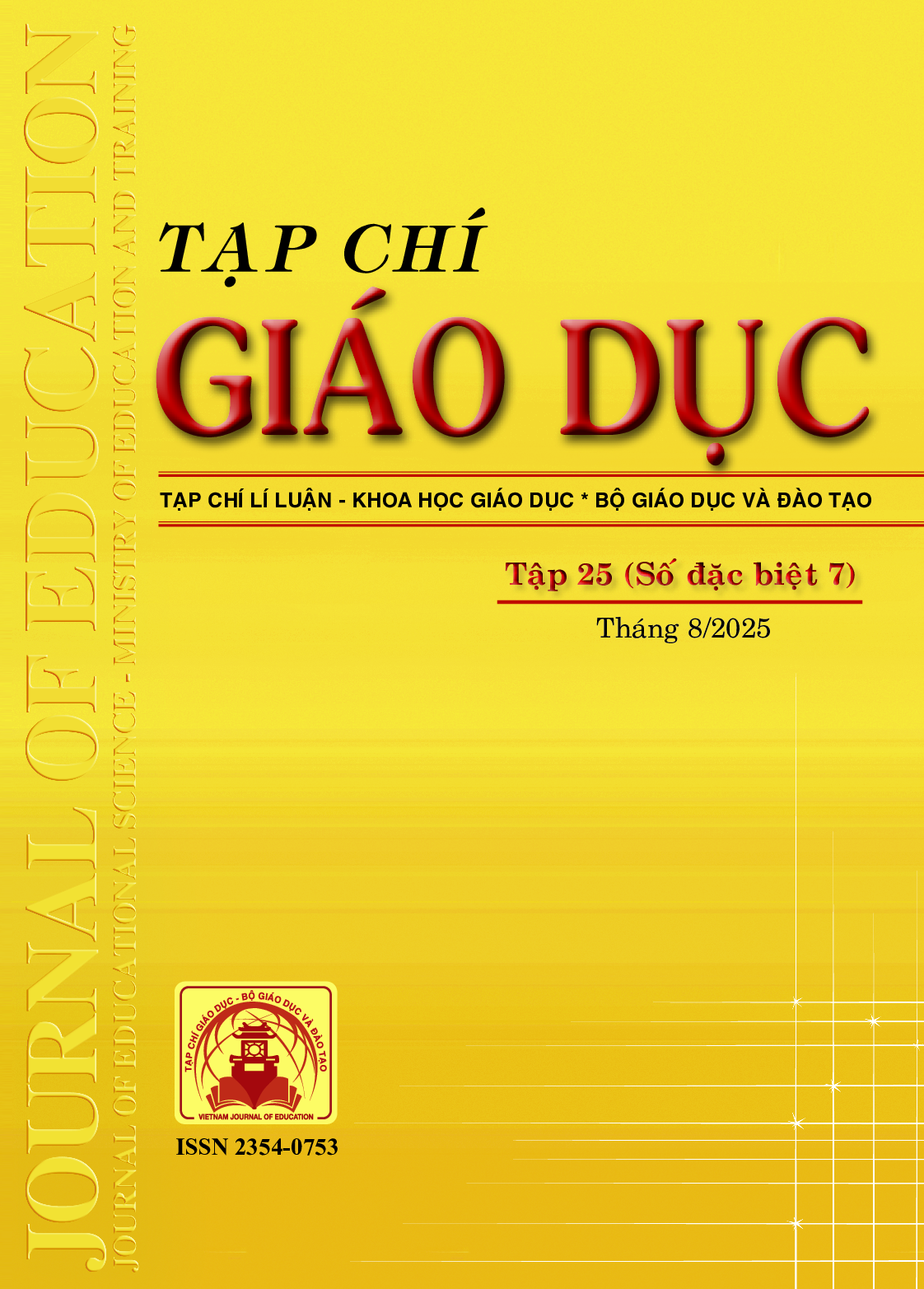Phát triển tư duy phản biện, tư duy sáng tạo cho sinh viên trong dạy học kiến thức tiếng Việt ở tiểu học bằng xây dựng ngân hàng ngữ liệu
Tóm tắt
Educational reform requires learners not only to acquire knowledge but also to develop critical and creative thinking to adapt to modern society. Yet, Vietnamese language teaching in primary schools and teacher training remains focused on description and classification, with limited attention to communication and higher-order thinking. Pre-service teachers often lack independent judgment and evaluative skills, leading to limitations in teaching quality. This study shows their critical and creative thinking is weak, largely due to passive learning habits and insufficient practice opportunities. Drawing on theoretical and practical foundations, the research designed and piloted a linguistic corpus for Vietnamese language education. Findings confirm that the corpus is an effective tool for enhancing analysis, evaluation, and creativity among students, lecturers, and teachers. It also serves as an open resource and training environment for critical and creative thinking. The study highlights the potential to expand trials and integrate digital technologies and artificial intelligence to improve applicability in teacher education and Vietnamese language instruction.
Tài liệu tham khảo
ATC21S. (n.d.). Assessment and teaching of 21st century skills. Retrieved from https://www.researchgate.net/publication/242705214_Assessment_and_Teaching_of_21st_Century_Skills
Bộ GD-ĐT (2018a). Chương trình giáo dục phổ thông - Chương trình tổng thể (ban hành kèm theo Thông tư số 32/2018/TT-BGDĐT ngày 26/12/2018 của Bộ trưởng Bộ GD-ĐT)
Bộ GD-ĐT (2018b). Chương trình giáo dục phổ thông môn Ngữ văn (ban hành kèm theo Thông tư số 32/2018/TTBGDĐT ngày 26/12/2018 của Bộ trưởng Bộ GD-ĐT).
Fisher, A. (2001). Critical thinking - An introdution (2nd ed.). Cambridge University Press.
Glaeser, W. (2022). Digital transformation: People, culture, workplace - Navigating in a VUCA world lecture. https://www.vuca-world.org/wp-content/uploads/2022/01/vuca-lecture.pdf
Lê Phương Nga (2013). Bảo đảm mục tiêu phát triển năng lực giao tiếp cho học sinh trong quá trình dạy học các tri thức tiếng Việt ở trường tiểu học. Tạp chí Khoa học, Trường Đại học Sư phạm Hà Nội, 58, 3-12.
Lê Phương Nga (2019). Phương pháp dạy học Tiếng Việt ở tiểu học II. NXB Đại học Sư phạm.
Lê Phương Nga (chủ biên), Dương Hằng (2025). 40 đề phát triển năng lực Tiếng Việt. NXB Phụ nữ Việt Nam.
Lương Thị Hiền, Lê Phương Nga (2024). Thực trạng và biện pháp phát triển tư duy phản biện cho sinh viên sư phạm trong sử dụng trí tuệ nhân tạo tạo sinh. Tạp chí Khoa học, Trường Đại học Vinh (số đặc biệt 2), 53-58.
Ministry of Education Singapore. (n.d.). 21st century competencies. https://www.moe.gov.sg/education-in-sg/21st-century-competencies
OECD (2019). OECD future of education and skills 2030 - OECD learning compass 2030 - A series of concept notes. https://www.oecd.org/education/2030-project/teaching-and-learning/learning/learning-compass-2030/OECD_Learning_Compass_2030_Concept_Note_Series.pdf
Paul, R., Elder, L. (2004). Critical thinking: Tools for taking charge of your professional and personal life. Pearson.
UNESCO (n.d.). Education and training in a changing world: What skill do we need? [Video]. YouTube. https://www.youtube.com/watch?v=Ui_rzJ8OYNc
Đã Xuất bản
Cách trích dẫn
Số
Chuyên mục
Giấy phép

Tác phẩm này được cấp phép theo Ghi nhận tác giả của Creative Commons Giấy phép quốc tế 4.0 .












